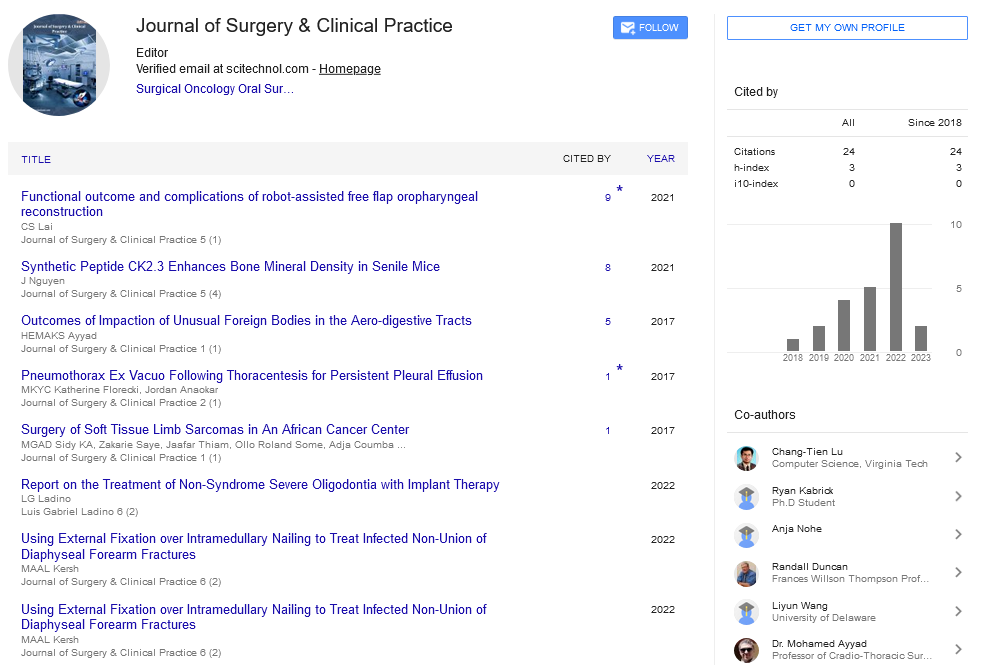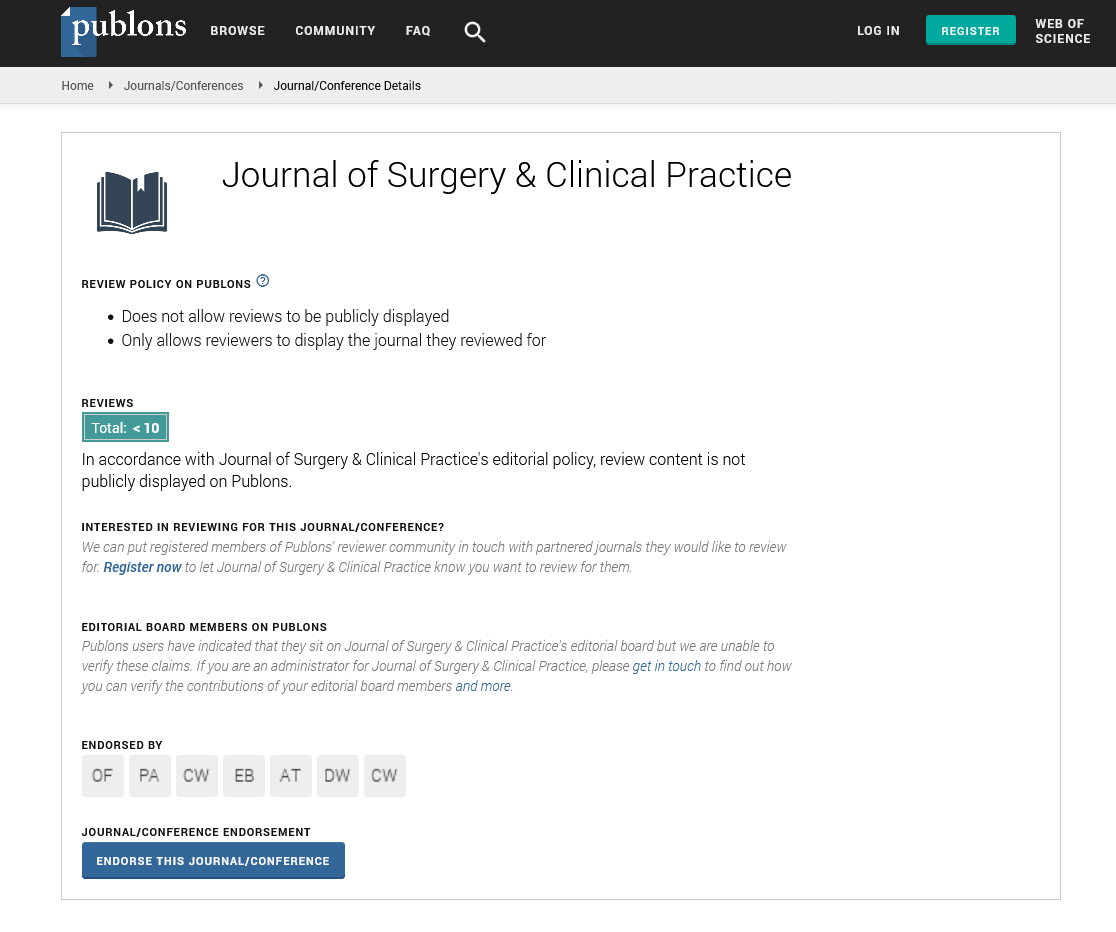Successful treatment of CRPS with continuous labor epidural
Timothy M Connolly, Mary So, Zachary Turnbull and Mohammad Piracha
Weill Cornell Medical College, United States
: J Surg Clin Pract
Abstract
A 34 year-old full-term primigravida was presented in labor. She had CRPS of her left foot following a trauma 15 years prior with significant allodynia and dystrophic changes, requiring crutches to ambulate. She was prescribed a topical compounded agent containing ketamine, baclofen, and gabapentin, however had not used this during the pregnancy. The patient was consented for placement of a continuous epidural catheter for control of labor pain. An epidural was placed in the L3-L4 interspace without complication, and a bupivacaine 0.06%/fentanyl 2mcg/mL infusion begun at 10mL/hr. The patient had very good pain control of her labor contractions and markedly decreased pain of her left foot. On exam, her baseline erythema had regressed, and within 4 hours the pain, erythema, edema, and warmth of her left foot and ankle had overwhelmingly resolved. The patient had an uneventful labor and delivery. On follow-up, the patient reported continued improvement of her CRPS symptoms and pain, ambulating without crutches even at 3 months postpartum. CRPS is a pain condition often seen with dystrophic sympathetic symptoms of the affected site. While the precise pathogenesis remains unknown, there is a dysregulation of the CNS mechanisms with central sensitization and an increase in the excitability of CNS neurons. Currently, there are limited successful treatment modalities for CRPS. Moreso, there is little prognostic or treatment data for CRPS and pregnancy. Pregnancy has been shown to be a predisposing factor in the development or relapse of CRPS, with unclear mechanisms. While the literature has demonstrated successful therapy of CRPS with continuous epidural catheters, this is one of the first to describe such a success with a labor epidural. Multidisciplinary involvement between pain management, obstetricians and anesthesiologists can optimize a successful pregnancy course in CRPS parturients.
Biography
E-mail: tmc9010@nyp.org
 Spanish
Spanish  Chinese
Chinese  Russian
Russian  German
German  French
French  Japanese
Japanese  Portuguese
Portuguese  Hindi
Hindi 
